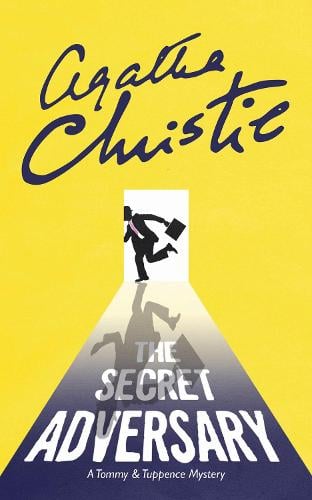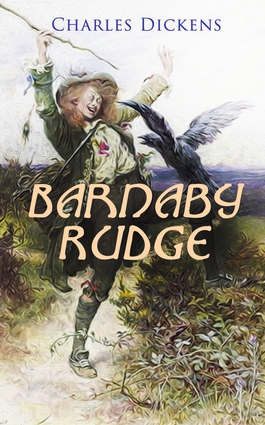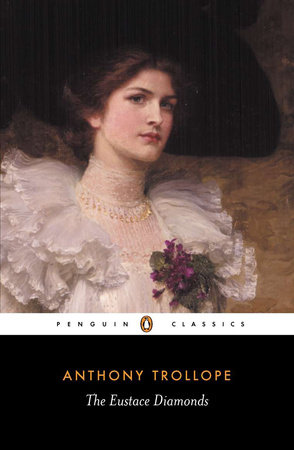Reviews of books, period dramas, and a few other things. Updates every Sunday and Wednesday.
Wednesday, 19 February 2020
A Short Break
You may have noticed that there was no new post on Sunday. Unfortunately there won't be one today either. I've caught a cold and I'm too busy sneezing and feeling truly dreadful to think of writing reviews. Real life has been incredibly stressful lately even without illness, so this was the last straw. I'm taking a break from posting, and the next review will be up on 1st March. By then my cold will be just an unpleasant memory (I hope!), and real life may be less chaotic.
Wednesday, 12 February 2020
Review: The Warden
This week has been truly awful. The only good thing about it is that I finished another book on my list of books to read this year. So here's a review of it.
Searching for a cover to put here brought up some really weird results. Most of them had nothing to do with Anthony Trollope or Victorian novels, and were instead a mixture of true crime and fantasy.
The Warden was Anthony Trollope's fourth novel, first published in 1855. It's the first in the Chronicles of Barsetshire series. There have been at least two miniseries based on it.
As the title implies, the story revolves around Mr. Harding, warden of an almshouse. John Bold, a reformer and also Mr. Harding's future son-in-law, decides Mr. Harding is getting too much money from the almshouse. It leads to a complicated muddle of lawyers, newspapers, and Mr. Harding's retirement.
Barchester Towers manages to turn an uninteresting subject -- rivalries between clergymen -- into an interesting novel. Alas, The Warden doesn't manage to do the same. Even though it's a short novel I found it frequently dragged. None of the characters are as sympathetic as they would be in the sequel. And the whole time I was reading, I could only think, "What a lot of fuss about nothing!"
I must say I was disappointed in this book. It has its good moments, but just as often it becomes a plodding bore.
Is it available online?: Yes, on Gutenberg.
Rating: 5/10.
Is it available online?: Yes, on Gutenberg.
Rating: 5/10.
Sunday, 9 February 2020
Review: The Secret Adversary
Finally read an Agatha Christie novel! True, it's not one of her better-known ones. I read it mainly because I couldn't find any copies of the better-known ones.
The Secret Adversary is one of Agatha Christie's earliest works, first published in 1922. It's been adapted into a silent film, two miniseries, a graphic novel, and at least two stage productions.
The main story is set shortly after World War I ended. Tommy and Tuppence are desperate for money, so they decide to start a business: "The Young Adventurers". Almost immediately they get involved in the case of a missing girl, some very important papers, and a criminal mastermind.
It's easy to tell this book was written by an author just starting her career. The story is often rushed, occasionally confusing, and generally shows the signs of an inexperienced writer. (Though it's still miles better than my early works. To start with, it's actually readable.)
The reveal of the villain's true identity is easy to see coming. I guessed it about half-way through, shortly before Mrs. Vandermeyer killed herself. And when Mr. Brown finally confirms who he is, the confrontation is over in a few paragraphs. Not to mention that I was left wondering why he bothered revealing his identity at all. It's a bit too reminiscent of cartoon villains gloating and laughing evilly just so the hero has the chance to foil their plots. Honestly, before his suicide I half expected Mr. Brown to shout "Curses! Foiled again!" or "I could have gotten away with it if it weren't for you meddling kids!".
If you want an entertaining and short novel to read, try this one! Just ignore the contrived events and implausible coincidences.
Is it available online?: Yes, on Gutenberg.
Rating: 7/10.
The Secret Adversary is one of Agatha Christie's earliest works, first published in 1922. It's been adapted into a silent film, two miniseries, a graphic novel, and at least two stage productions.
The main story is set shortly after World War I ended. Tommy and Tuppence are desperate for money, so they decide to start a business: "The Young Adventurers". Almost immediately they get involved in the case of a missing girl, some very important papers, and a criminal mastermind.
It's easy to tell this book was written by an author just starting her career. The story is often rushed, occasionally confusing, and generally shows the signs of an inexperienced writer. (Though it's still miles better than my early works. To start with, it's actually readable.)
The reveal of the villain's true identity is easy to see coming. I guessed it about half-way through, shortly before Mrs. Vandermeyer killed herself. And when Mr. Brown finally confirms who he is, the confrontation is over in a few paragraphs. Not to mention that I was left wondering why he bothered revealing his identity at all. It's a bit too reminiscent of cartoon villains gloating and laughing evilly just so the hero has the chance to foil their plots. Honestly, before his suicide I half expected Mr. Brown to shout "Curses! Foiled again!" or "I could have gotten away with it if it weren't for you meddling kids!".
If you want an entertaining and short novel to read, try this one! Just ignore the contrived events and implausible coincidences.
Is it available online?: Yes, on Gutenberg.
Rating: 7/10.
Wednesday, 5 February 2020
(Not Really a) Review: Five Books That Should Be Adapted
Plenty of books get adaptations. Some get several. Then there are the unfortunate ones that get none. And some books that should be adapted are overlooked. This is a short list of the five (...sort of) books that I really want to see adapted (again).
The Prisoner of Zenda has been adapted before. Several times. The quality of those adaptations ranges from "excellent" to "atrocious". But the last really good adaptation was in 1937(!). Same goes for its sequel Rupert of Hentzau, which hasn't been adapted since 1964 -- and that adaptation's lost. It's high time someone made a film or miniseries based on these books. The more faithful to the source, the better.
Barnaby Rudge is Charles Dickens' least-known novel. Which is a pity, because it's both a good story and is set during an equally little-known part of history. Its most recent screen adaptation was in 1960. If people want to make a new miniseries based on a Dickens novel, they should stop adapting A Christmas Carol for the umpteenth time and turn to this book instead.
Mary Barton was Elizabeth Gaskell's first novel. Thematically it's very similar to North and South. It was last adapted in 1964, but that version's lost. Apparently the BBC planned to adapt it in 2012, but nothing came of that. I hope someone raises the idea again.
Emily of New Moon has been adapted before, but I'd like to see film or series versions of the entire trilogy someday. Unfortunately there's a high chance any modern adaptation of it will go the way of Anne With An E. I don't think I could bear to see them butchered like that. Anyone planning to adapt them had better make sure they actually stay close to the books.
All right, so The Eustace Diamonds is the third in a series. The ideal solution would be to adapt the entire series. (This was done back in the 70s, but I've never been able to enjoy 70s period dramas.) If that sounds too complicated, there's very little connecting this book with the rest of the series. A little bit of work and it would be a good standalone film/miniseries.
Of course there are other books that deserve adaptations. But these are the ones I especially want to see, and there's currently no sign that any of them will be adapted. Certainly not any day soon 😔
The Prisoner of Zenda has been adapted before. Several times. The quality of those adaptations ranges from "excellent" to "atrocious". But the last really good adaptation was in 1937(!). Same goes for its sequel Rupert of Hentzau, which hasn't been adapted since 1964 -- and that adaptation's lost. It's high time someone made a film or miniseries based on these books. The more faithful to the source, the better.
Barnaby Rudge is Charles Dickens' least-known novel. Which is a pity, because it's both a good story and is set during an equally little-known part of history. Its most recent screen adaptation was in 1960. If people want to make a new miniseries based on a Dickens novel, they should stop adapting A Christmas Carol for the umpteenth time and turn to this book instead.
Mary Barton was Elizabeth Gaskell's first novel. Thematically it's very similar to North and South. It was last adapted in 1964, but that version's lost. Apparently the BBC planned to adapt it in 2012, but nothing came of that. I hope someone raises the idea again.
Emily of New Moon has been adapted before, but I'd like to see film or series versions of the entire trilogy someday. Unfortunately there's a high chance any modern adaptation of it will go the way of Anne With An E. I don't think I could bear to see them butchered like that. Anyone planning to adapt them had better make sure they actually stay close to the books.
All right, so The Eustace Diamonds is the third in a series. The ideal solution would be to adapt the entire series. (This was done back in the 70s, but I've never been able to enjoy 70s period dramas.) If that sounds too complicated, there's very little connecting this book with the rest of the series. A little bit of work and it would be a good standalone film/miniseries.
Of course there are other books that deserve adaptations. But these are the ones I especially want to see, and there's currently no sign that any of them will be adapted. Certainly not any day soon 😔
Sunday, 2 February 2020
Review: Lady Susan (novel)
It's hard to believe this is a Jane Austen novel. It has incredibly little in common with her later works.
Trying to find a cover to put here was a headache. Almost all the covers also included The Watsons and Sanditon, or else they were about the film adaptation instead of the book.
Lady Susan was one of Jane Austen's earliest works, but was only published in 1871. It's the only epistolary novel she wrote. It's been adapted into a 2016 film (titled Love and Friendship -- confusingly the name of a completely different Austen book) and several stage versions, as well as being the inspiration for a few books.
From the beginning it's clear this isn't the sort of story you think of when you hear the name "Jane Austen". The title character is, to put it bluntly, a scumbag. She's a callous, conniving snake who in the course of the novel is briefly engaged to one man, ends up marrying a different one, and the whole time is having an affair with yet another man -- a married man, in this case. The plot revolves around her attempts to marry both herself and her daughter to rich men, while her intended victim's sister tries to thwart her plans.
I read the entire novel in less than an hour. (Not as impressive as it sounds; it's a very short novel. Less than fifty pages in my edition.) The whole time I wanted two things: to see Lady Susan's true nature be revealed to everyone, and to see her poor, abused daughter finally get away from her. Both of those things happen... in a way. Frederica does eventually escape her loathsome mother, but sadly Lady Susan escapes more or less unscathed. Reginald has his eyes opened in time to avoid marrying her. Sir James isn't so lucky.
Honestly, of all the characters in the book I feel sorriest for Mrs. Manwaring and Sir James. Mrs. Manwaring discovers that her husband has betrayed her with Lady Susan, and her friend's wife is Lady Susan's best friend/partner-in-crime. Sir James is undeniably an idiot, but he didn't deserve being stuck with Lady Susan as a wife.
If you read this book expecting a typical Jane Austen story, you're in for a surprise. But it's still a thoroughly entertaining story, and Lady Susan herself is one of the best villains Miss Austen ever wrote.
Is it available online?: Yes, on Gutenberg.
Rating: 7/10.
Subscribe to:
Comments (Atom)






